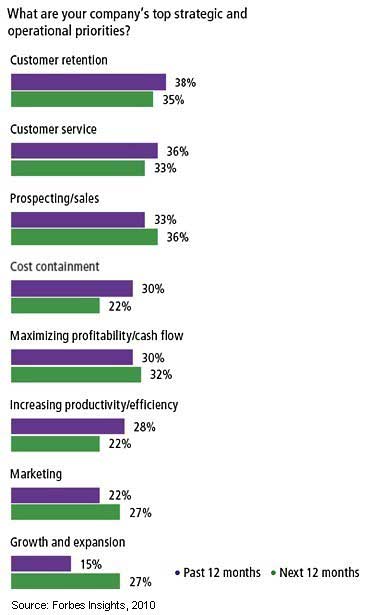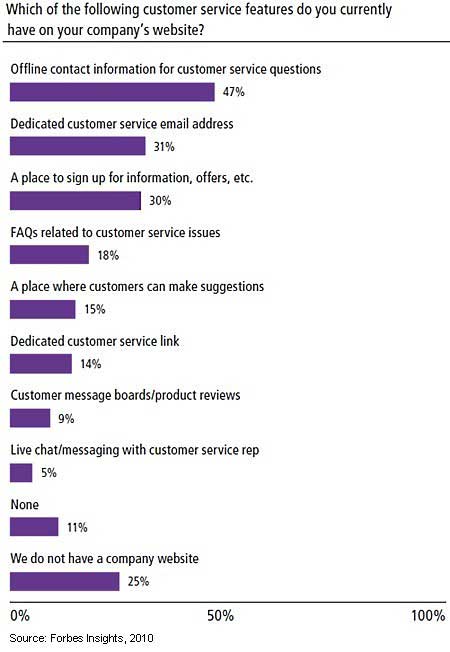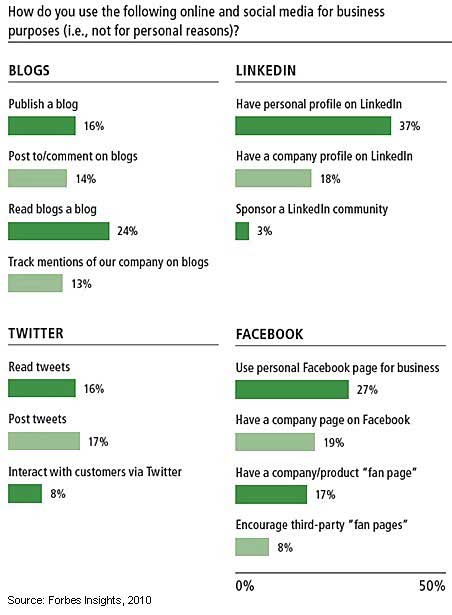Most women-owned small businesses say customer service is a top strategic priority—but don't have a formal, companywide customer-service strategy—and many do not take advantage of important marketing channels, such as websites and social media, according to a survey from Forbes Insights.
The business realities of the economic recession—including declining sales and reduced cash flow—caused many woman-owned small businesses to retreat, according to the study. Post recession, however, they are taking a customer-centric approach, determined to build long-lasting customer relationships.
Among top strategic priorities over the past year, 38% of female business owners surveyed cite customer retention and 36% cite customer service.

Looking ahead to the next year, women business owners say prospecting and sales are top of mind (36%), with customer retention (35%) and customer service (33%) close behind.
Below, other findings from the study Strategies for Recovery: Woman-Owned Small Businesses Put the Customer First, which surveyed 320 female small business owners.
Focused on Current Customers
Given current economic conditions, most woman-owned businesses are focused on retaining their current customers rather than hunting for new ones, and they recognize it's cheaper to retain customers than find new ones.
Two-thirds (66%) disagree that new customers are more profitable than existing customers, and 74% disagree that reductions in the sales pipeline have led them to focus more on new customers.
Little Formal Customer Strategy
Although female business owners understand the value of strong customer service, they don't have a clear vision of how to implement it: 55% say the approach customer service on a case-by-case basis, while just 18% have a formal customer-service strategy.
Some 27% say they don't have dedicated customer-service strategy.
Failure to Adopt Emerging Channels
Though most of the woman-owned businesses surveyed have a corporate website (75%), they are not necessarily used for customer service: 47% of female business owners say they list their offline contact information for customers, while just 31% have a dedicated customer service email address and only 30% have a place on their site for customers to sign up to receive information.

Fewer female-owned businesses use interactive online features, such as customer message boards and product reviews (9%) and live chat/messaging customer-service systems (5%).
Email plays a substantial role: 42% of female business owners say they email customers and prospects at least monthly; 28% publish an email newsletter; and 16% have an email list for special offers.
Looking for great digital marketing data? MarketingProfs reviewed hundreds of research sources to create our most recent Digital Marketing Factbook (May 2010), a 296-page compilation of data and 254 charts, covering email marketing, social media, search engine marketing, e-commerce, and mobile marketing. Also check out The State of Social Media Marketing, a 240-page original research report from MarketingProfs.
Social Media Use
Overall, few female small-business owners surveyed are using social technologies for business:
- 37% say they have a profile on LinkedIn and 18% have a company profile on the site.
- 27% say they are using Facebook and 19% have a company page on the site.
- 17% say they post tweets on Twitter.
- 16% say they publish a business blog and 13% track their company on blogs.

Most female business owners don't track virtual conversations about their companies: Just 29% say they actively track blogs, tweets, or Facebook postings related to their companies.
Instead, female business owners are sticking with tried-and-true methods.
Potentially effective loyalty tactics, such as rewards programs (16%) and triggered coupons (11%) are being eschewed in favor of more casual programs, such as personalized services (75%) or handwritten notes (63%).
Success Metrics and Customer Management Systems
Few woman-owned businesses use formal customer-service metrics, relying instead on those that may be more obvious. For example, 56% cite the length of a customer relationship as a primary customer-service success metric, while 48% cite word-of-mouth.
Other methods that require more detailed analyses, such as website traffic (12%), revenue per client (24%), and customer satisfaction metrics (20%) are less important to them.
Most of the woman-owned businesses surveyed do not have CRM (customer relationship management) systems in place to track their customers: 32% say they are using computer address books or email contact programs to keep track of their customers' most basic information.
Only 7% of those surveyed are using contact management software (such as ACT), and only 5% are using integrated CRM programs.
Some 14% don't use software to record customer data.
About the data: Findings are from a survey of 320 woman-owned small businesses in the US, conducted by Forbes Insights in March 2010 in association with Key Bank's Key4Women program. Some 88% of respondents held the title of owner, and 6% said they were president or CEO.



